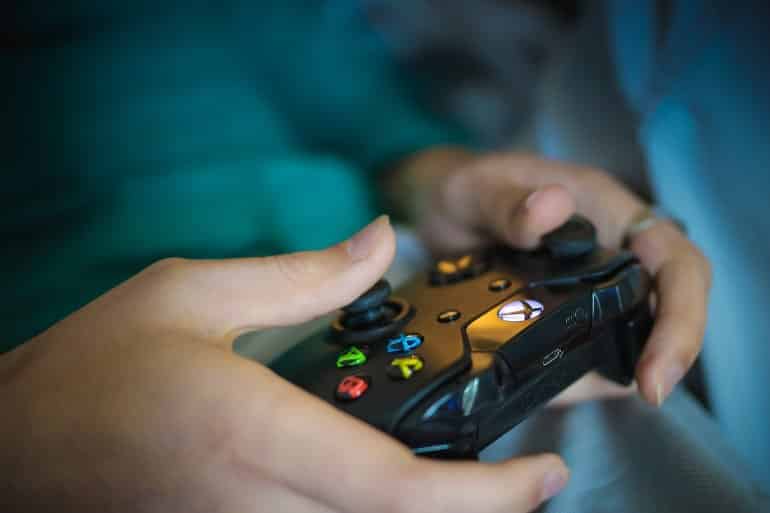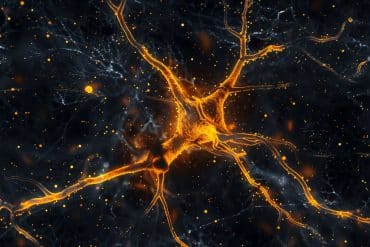Summary: Inexpensive, commercial video games may help those suffering from anxiety and depression to combat their symptoms. Researchers found that, in addition to conventional games, virtual reality games could help people overcome mental health problems.
Source: Lero
Popular video games have the potential to provide low-cost, easy access, effective and stigma-free support for some mental health issues, researchers at Lero, the Science Foundation Ireland Research Centre for Software, have found.
The team at Lero, a world leader in connected-health research, said video games could be used where conventional therapies are not available because of cost or location, or as an addition to traditional therapeutic treatments for depression or anxiety.
Lero researcher Dr Mark Campbell said there is mounting scientific evidence supporting the efficacy of commercial video games to improve mental health outcomes after the team reviewed existing academic research on the impact of video games on mental health issues, particularly depression and anxiety.
“It is worth considering commercial video games as a potential alternative option for the improvement of various aspects of mental health globally,” he added.
Dr Campbell led a team attached to University of Limerick’s Health Research Institute and Physical Education & Sport Sciences department to publish their latest research paper Gaming your mental health: A narrative review on mitigating depression and anxiety symptoms via commercial video games in academic journal JMIR Serious Games.
Dr Campbell said commercial video games are freely available or available for a one-time relative low cost and there are an estimated 2.7 billion video gamers worldwide.
“The overall accessibility and pervasiveness of commercial video games within modern society positions them as an invaluable means of reaching individuals with mental health disorders, irrespective of age and sex, and with limited access to mental health care, particularly relevant during the current COVID-19 pandemic,” he said.
Lead author on the paper Magdalena Kowal of Lero and UL said their research was in the context of the financial and healthcare service burden of mental illness, affecting more than 14% of the world’s population, with a significant proportion of people with mental health problems not receiving treatment.

“There is a heightened demand for accessible and cost-effective methods that prevent and facilitate coping with mental health illness. This demand has become exacerbated following the advent of the COVID-19 pandemic and subsequent increase in mental health disorders, depression and anxiety in particular,” she said.
Magdalena Kowal said commercially available Virtual Reality (VR) video games have great potential in treating mental health issues also.
“These are well-suited for the implementation of cognitive behavioural techniques for the treatment of depression and anxiety disorders in the future. Given the immersive nature of VR technology and the controllability of the virtual environment, it could be particularly well-suited for use in exposure therapy,” she added.
About this gaming and mental health research news
Source: Lero
Contact: Nicola Corless – Lero
Image: The image is in the public domain
Original Research: Open access.
“Gaming Your Mental Health: A Narrative Review on Mitigating Symptoms of Depression and Anxiety Using Commercial Video Games” by Mark Campbell et al. JMIR Serious Games
Abstract
Gaming Your Mental Health: A Narrative Review on Mitigating Symptoms of Depression and Anxiety Using Commercial Video Games
Globally, depression and anxiety are the two most prevalent mental health disorders. They occur both acutely and chronically, with various symptoms commonly expressed subclinically. The treatment gap and stigma associated with such mental health disorders are common issues encountered worldwide.
Given the economic and health care service burden of mental illnesses, there is a heightened demand for accessible and cost-effective methods that prevent occurrence of mental health illnesses and facilitate coping with mental health illnesses. This demand has been exacerbated post the advent of the COVID-19 pandemic and the subsequent increase in incidence of mental health disorders.
To address these demands, a growing body of research is exploring alternative solutions to traditional mental health treatment methods.
Commercial video games have been shown to impart cognitive benefits to those playing regularly (ie, attention control, cognitive flexibility, and information processing). In this paper, we specifically focus on the mental health benefits associated with playing commercial video games to address symptoms of depression and anxiety.
In light of the current research, we conclude that commercial video games show great promise as inexpensive, readily accessible, internationally available, effective, and stigma-free resources for the mitigation of some mental health issues in the absence of, or in addition to, traditional therapeutic treatments.






